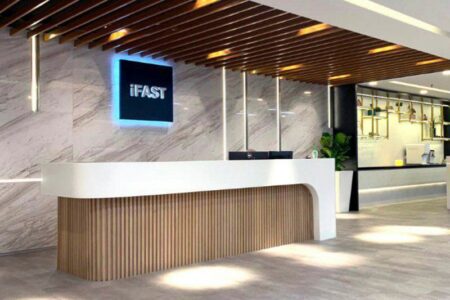I am sure many of us are looking forward to a new beginning in 2021, as we try and put the nightmare of the COVID-19 pandemic behind us….
…. The rollout of vaccines around the world will, of course, be of great help. I never, in my wildest dreams, would have looked forward so much to getting a jab in the arm.
A mass rollout of vaccinations will mean that we can, in time, gather in larger numbers. Who knows, we might even be able to meet face-to-face at our member’s events again.
What’s more, bigger crowds will make it easier to order a proper table of Chinese food. It is quite hard to eat an entire suckling pig when there just four other people sitting at a restaurant dining table.
Elsewhere, some of us might be celebrating the chance to travel overseas again. As much as we might like catching a ferry to Pulau Ubin for a day out, it’s not quite the same as jetting off to Bali, Phuket, or Penang.
Back to normalcy
Consequently, the thought of returning to some sense of normality should be more than enough to make us grin from ear to ear, even if the soggy weather we are experiencing in Singapore has dampened the mood somewhat.
And as we slowly recover from the pandemic, economic activity should gradually start to pick up again. It is already happening. Just look at the shopping malls.
On that point, many of us might intuitively think that as businesses come out of recession their futures would also start to look brighter. We might assume that their cash flow and profits should swell those badly-depleted coffers.
But nothing could be further from the truth.
There are significantly more dangers for companies coming out of recession than when they entered the economic downturn.
Cut and shed
As businesses enter recession, they are forced to go through a period of belt tightening. They don’t have a choice. They must trim their output in line with reduced demand for their products and services.
During this period of retrenchment many companies have cut their inventory levels and shed staff. Singapore’s unemployment rate is the highest since 2006.
Companies will also downsize their operations and scale back on capital spending….
…. Some might even jettison underperforming businesses or dispose of assets simply to replenish their fast-emptying bank accounts. It’s all part and parcel of dealing with the business cycle.
That is the easy bit.
The next phase
As slimmed-down and more efficient operators, these companies are better placed to cope with a smaller economy. Singapore’s economic output shrank 5.8% in 2020….
…. Our nearest neighbour, Malaysia, is expected to see its economy decline 4.5%, while the economies of Indonesia and Thailand could contract 2.2% and 6.6%, respectively.
But as economies start to expand again, which they should in 2021, businesses need to be ready to cope with the ensuing increase in demand.
The twin threat
Some could find that because of their over-prudence, they will be faced with the twin threats of insufficient capacity and a shortage of working capital….
…. They could also find that some of their better-positioned and better-financed competitors will eat away at their share of the market. In the meantime, banks could be more cautious about who they lend to.
The period that follows an economic downturn is a time for an even more cautious approach to picking shares. We should pay extra attention to the fundamentals of businesses.
So, look for companies with robust balance sheets, strong cash flow, healthy margins, and not just vague promises of favourable sales ahead.
2021 just like 2020 will be a stock-pickers market. If we choose our stocks carefully, it should be another good 12 months.
I am looking forward to another strong year for my portfolios.
So come, let’s journey together for a stronger and more prosperous year.
To a better 2021…
Want to ride the stock market recovery? Download your FREE report: 3 Stocks I will buy in 2021! It comes with a bonus 3 trends for 2021, so you will be well equipped to ride the stock market recovery in 2021. Click HERE to download now!
Follow us on Facebook and Telegram for the latest investing news and analyses!
Disclaimer: David Kuo does not own any of the companies mentioned.




